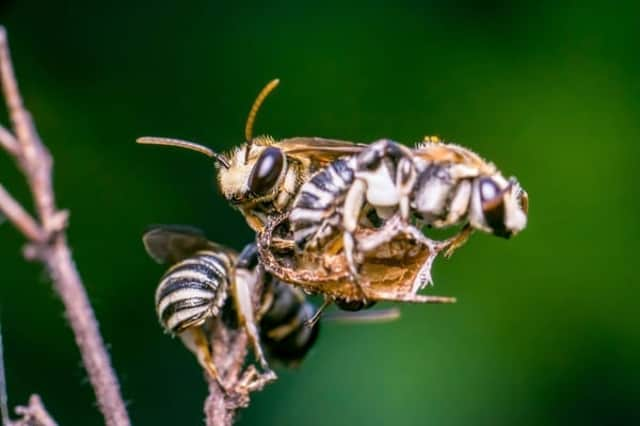Doctors discovered live bees feeding on tears inside a woman's eye


Doctors in Taiwan discovered four live bees inside a woman's tear duct, after she admitted herself to hospital complaining of a swollen eye.
The small insects, known as sweat bees, were discovered living under her eyelids where they were feasting on her tears.
A 'world first'


Advertisement
Hide AdAdvertisement
Hide AdThe 29 year old Taiwanese woman expected to be treated for a simple infection, after she sought medical help for swelling around her eye.
Doctors at Fooyin University Hospital in Taiwan described the discovery of the sweat bees as a "world first", having successfully managed to extract all four from her tear duct alive.
Commenting on the incident at a press conference, the hospital's head of ophthalmology Dr Hung Chi-ting said, "I saw something that looked like insect legs, so I pulled them out under a microscope slowly, and one at a time without damaging their bodies."
The woman, He, who was referred to by her surname only, had been tending to a family member's grave and was pulling out weeds when she felt something go into her eye, CTS News reported.
Advertisement
Hide AdAdvertisement
Hide AdPresuming it was soil, she washed it out with water. However, it later began to swell up and she felt a sharp stinging pain underneath her eyelid.
Doctors at Fooyin University Hospital successfully managed to extract all four from her tear duct alive (Photo: Shutterstock)
Saved eyesight
When He visited the hospital the next morning, Dr Hung suspected she had an infection, but discovered the tiny legs of the bees wriggling in her tear ducts when inspected under through a microscope.
The bees were found to be feeding off the moisture and salt of her tears.
Advertisement
Hide AdAdvertisement
Hide AdBut both He’s eyesight, and the lives of the bees, were saved by the fact she had not rubbed her eyes.
What are sweat bees?
The Halictidae bees, or ‘sweat bees’, are attracted to human perspiration and can be found all over the world.
The bees are not normally aggressive and only sting if touched, but once the stinger pierces the skin, it will continue to pump out venom until it is removed.
Dr Hung said that the bees commonly nest in the mountains and close to graves, which is how they had come into contact with He.
This article originally appeared on our sister site, Edinburgh Evening News